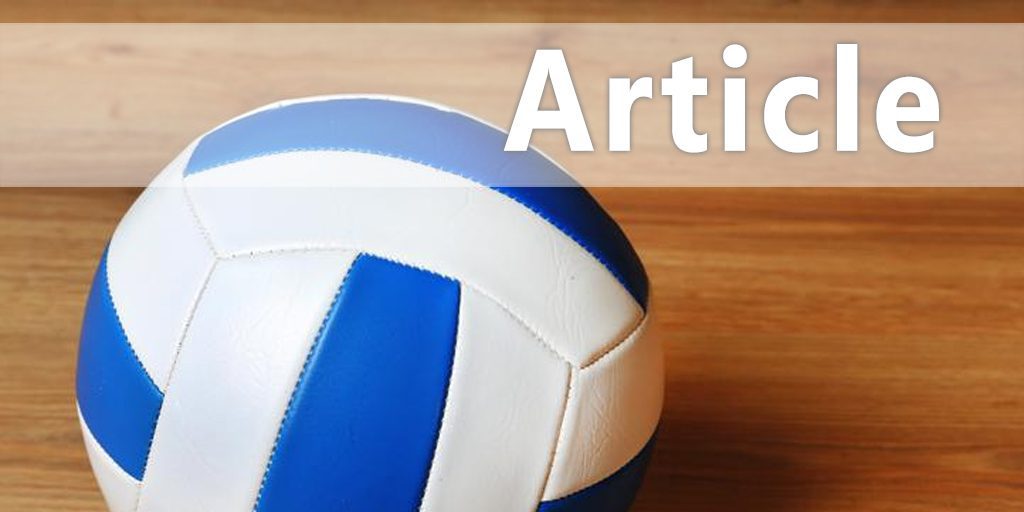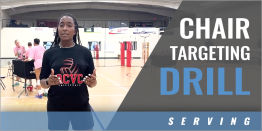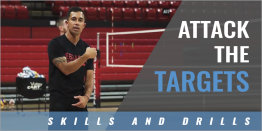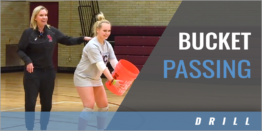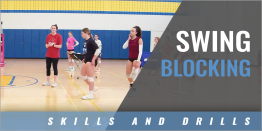|
By: Professor Iradge Ahrabi-Fard Originally Published in: Coaching Volleyball Magazine
Most athletic performances are the result of interaction of physical action based on mental directive and influence. Some sports require greater emphasis on physical aspects of performance, whereas others rely more on mental aspects for optimal outcome. Volleyball is a sport requiring equivalent contribution from both the physical and mental performance. In fact without proper mental feat technical performance is wasted. The skill performance is the product of technical execution enhanced by physical conditioning. Mental processing is also composed of knowledge-based (e.g., reading and response) and emotion-based (e.g., anxiety, excitability, mood swing etc.) factors. Actual game performance is the result of technical expertise performed within the conditioning capability, activated by mental stimulation from the knowledge about the game influenced by emotional response. Emotional responses either facilitate or debilitate all other aspects of game performance. Optimal mental performance can be achieved with the internal knowledge-based mental capability controlling the emotional response. Optimal reaction-based technical performances in volleyball require a training program consist of developmental drills that contain mental work training content. Team defense is a reactive effort of volleyball players to offensive attempts of the opponent. Every successful defensive effort requires three necessary elements:
Much of the coaching efforts in planning and implementing team defense are spent on items number 2 and 3. The most important element of defense to mesmerize a trained observation of opponent's offensive intention is often ignored or at best not strongly emphasized. Trained observation of opponent's offensive intention and the method of sharing relevant information is a strategy necessary to proper and accurate defensive reaction of team members for collective efforts. Every team member observes every planned offensive move. Their interpretation of coming to the same conclusion for coordinated team defensive efforts is horrendous task with often imprecise result. Identifying the most suitable position for the most effective observation and a method of sharing information with others requires responsibility design, training content and practice opportunity to develop experienced defensive conscious team. Even though all team members are observing the offense, best defensive effort is to assign specific player observing specific intricacies and reporting it to the rest for coordinated defensive effort. Front row are closest players to action and can be given specific responsibilities for the recognition of opponent's intention and exposing them to the entire team. Assigned responsibilities to front row players is recognition of certain intention with prompt report of their acquired information to the team. Since a sophisticated offense uses the entire length of the net with all front row and several back row players as attackers, it is necessary for the defensive team to use all front row players who are close to action with specific assigned individual responsibilities to observe certain behavior and report them clearly. The following recommendations are the author's suggestion as a model that can be attuned to suit teams' differences.
Mental alertness of front row players during team defense and team reaction to their communicated information is an advance skill that has to be developed with plenty of opportunities to practice in order to acquire team coordination and efficiency. Coaches should find this phase of team defense important, develop content and plan of action that matches their level of competition and cultivate team cleverness for coordinated defensive efforts. There are players who are quiet throughout the rallies. This type of responsibilities encourages and empowers them to be more visible during the rallies and become more of an extravert player.
About the Author... Iradge Ahrabi-Fard coached 19 years at the University of Northern Iowa and helped the Panthers make a successful transition from NCAA Division II competition to Division I. During his tenure at UNI, he compiled a 503-142 (.780) record and recorded at least 20 victories in 17 of 19 years. After guiding the Panthers to a 31-1 record in 1999 and a berth in the NCAA Division I Tournament Sweet 16, he was named the AVCA National Coach of the Year and received the inaugural AVCA Excellence in Education Award. Ahrabi-Fard was voted the AVCA District Coach of the Year in 1985 and 1999 and was the conference coach of the year six times, twice for the Gateway Conference and four-times in the Missouri Valley Conference. In 1997, he took a leave of absence to serve as a consultant for USA Volleyball and the development of its teams.
|
